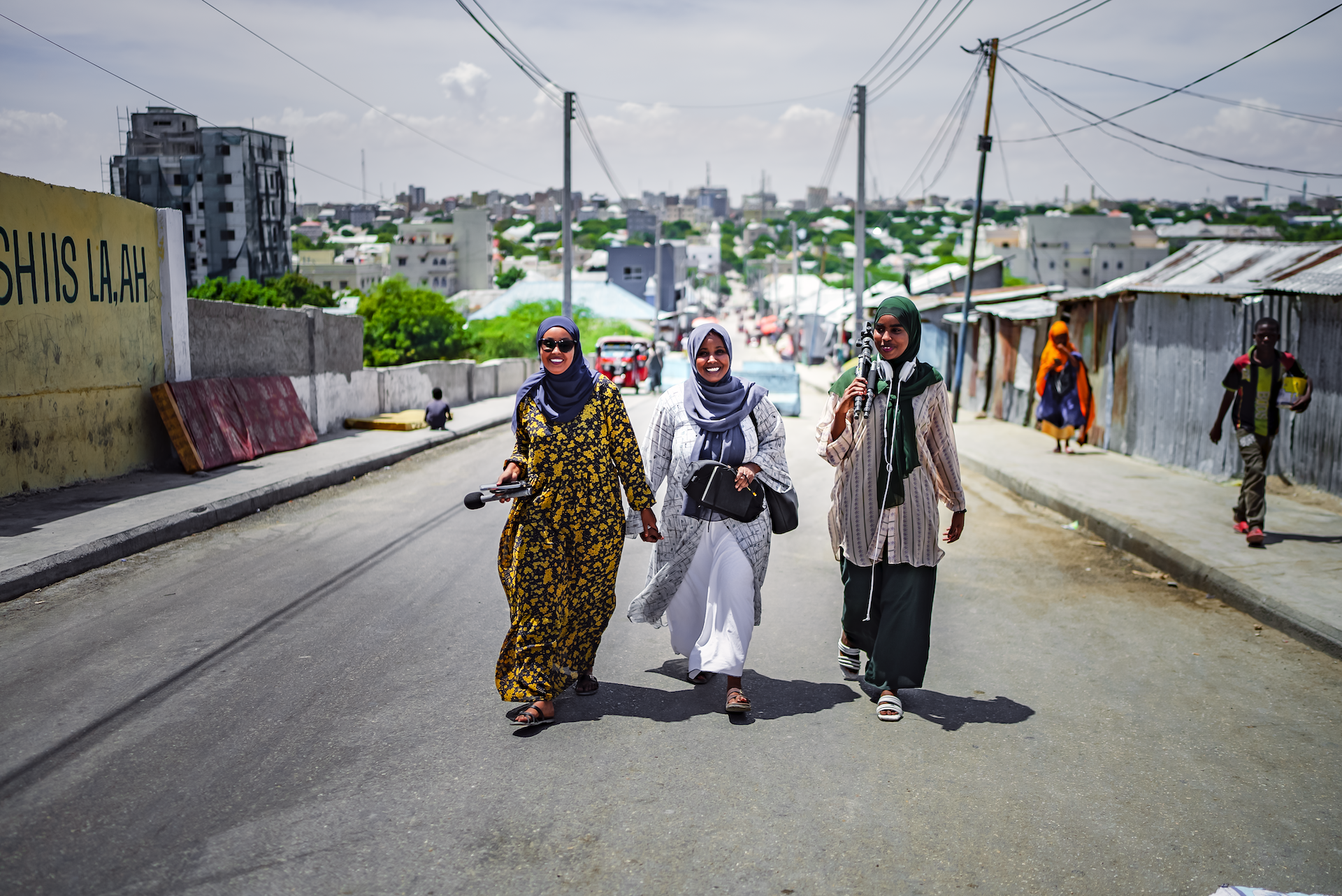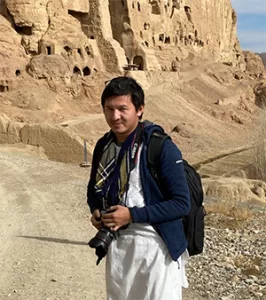2023 Freedom of Expression Award winners announced
An Iranian rapper, an Indian fact-checker and an Afghan with a motorbike classroom. One thing that connects these three is the time they’ve spent, or are still spending, behind bars. The other is that they all took home Freedom of Expression Awards last night. We’d like to spend this article introducing you to these champions of free expression, as well as honouring our Trustee Award winner, who needs no introduction. Who else could it be but Sir Salman Rushdie?
Every year when we gather in London to celebrate these annual awards and the relative safety we feel is in stark contrast to the positions our awards nominees find themselves in. This year was no different.
Toomaj Salehi, a well-known hip-hop artist from Iran, took home the 2023 Arts Award. Even if we’d wanted to bring Salehi to London to receive his award, it would have been impossible. Right now, as you read this, he is in jail for “corruption on earth”, and he’ll stay there for a further five-and-a-half years. Salehi sings about injustice and abuses by the Iranian authorities — even earlier arrests didn’t stop him from standing up to atrocities through his music. After supporting protests after the death of Jina “Mahsa” Amini, Salehi was once again arrested, this time violently, and it’s believed he was tortured into a false confession. Although he is still locked away, his music is not silenced, and you can listen to it here.
Our Campaigning Award winner comes from Afghanistan, the brilliant Matiullah Wesa. Through his organisation Pen Path, Wesa has been protecting education in the country, even more so after the Taliban takeover. Since 2009, he has re-opened over 100 schools closed by the Taliban in remote villages, as well as establishing new ones. He’s given pens and books to hundreds of thousands of children, and set up libraries in rural areas. And he’s set out on a motorbike, using it as a mobile classroom, complete with a computer screen, speakers and bookcase. But in March this year, he was detained by the Taliban and had his house raided. Seven months later there’s no sign of release. His family has not been allowed to visit him.
This year’s Journalism Award winner is Mohammed Zubair. He co-founded the fact-checking platform Alt News, set up to dismantle propaganda networks and debunk fake news. After setting its sights on political fact-checking and amplifying dissidents, the outlet came under pressure from the outside. And it wasn’t long before Zubair himself became a target. He was arrested in June 2022 for a tweet, and bailed. But every time he was released on bail, he was arrested again for something else — a cycle which lasted for almost a month. No doubt a very long time when you’re in and out of prison.
It’s not often that we mention Colin Firth in Index, but today we have good reason. He joined our chair Trevor Phillips on stage last night to present the Trustees Award, which was given to a bastion of free expression, novelist Sir Salman Rushdie. It won’t be news to Index readers that Rushdie has faced appalling threats to his life since publishing The Satanic Verses, the most serious of which was an attempted murder in New York last summer, leaving him blind in one eye. This week, Rushdie announced an upcoming release of a memoir about the attack. Understandably, Rushdie did not attend our event, but he did leave us with a video message. To round up our newsletter this week, we’d like to leave you with a few of his words:
“My connection with Index goes back really a long way…something like 40 years on and off that we have done things together. You know, I can’t avoid saying that the work is more important than ever because it seems like the urge to censor is stronger than ever and doesn’t come only from one direction. It comes from every possible direction, from the young and the old, the left and the right, and needs to be resisted as strongly as ever.”



 Mortaza Behboudi (Afghanistan/France)
Mortaza Behboudi (Afghanistan/France)